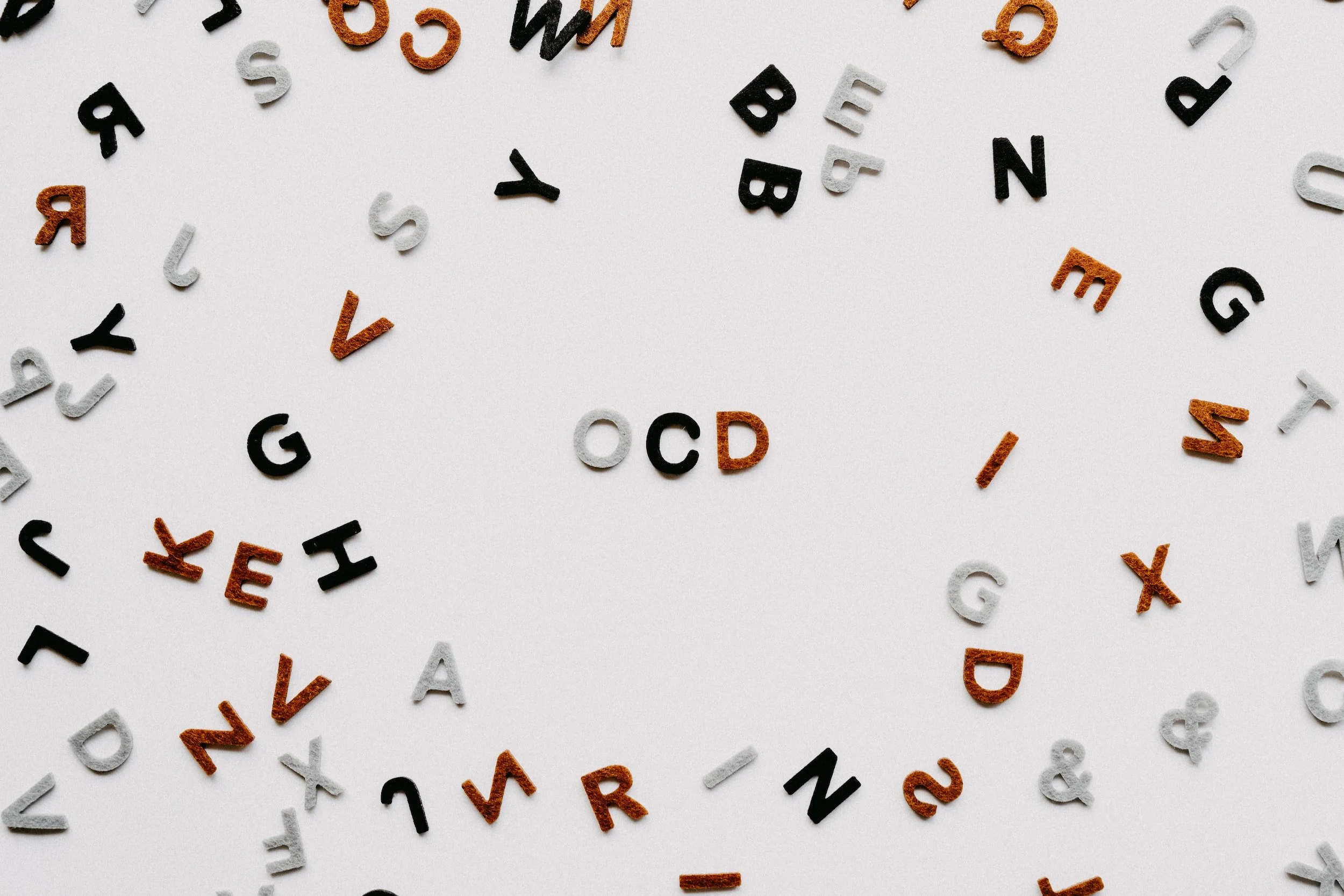OCD & How It Affects You
What is OCD?
OCD, or Obsessive-Compulsive Disorder, is a common disorder in which a person has uncontrollable, recurring thoughts/obsessions/behaviours/compulsions that they feel the need to repeat over and over again.
For example, someone with OCD might repeatedly check that they've locked their front door, even though they are certain they have done so already. However, it is important to note that simply double-checking something does not necessarily mean someone has OCD. OCD is characterized by repetitive behaviors done in response to obsessions, rather than simply checking something out of uncertainty.
Obsession vs. Compulsion
An obsession is a repeated thought, image, or urge that causes anxiety.
A compulsion is the repetitive behavior that those with OCD feel the urge to do in response to the obsessive thought.
Who can be affected by OCD?
OCD can affect anyone, regardless of gender, race, or economic status, and is common in adults, adolescents, and children. Although it is most commonly diagnosed by age 19, it can occur at any point in a person's life.
What are some of the risk factors to OCD?
Genetics - Those with first-degree relatives with OCD are at a higher risk of developing OCD themselves.
Brain Structure and Functioning - Although the connection is not entirely clear, imaging studies have shown differences in the frontal cortex and subcortical structures in those with OCD.
Environment - While there may be an association between childhood trauma and OCD, further research is needed in this area.
What are the signs + symptoms?
OCD symptoms include obsessions, compulsions, or both. Individuals with OCD can often find themselves in a cyclical routine of acting on their obsessions/compulsions to ease the anxiety associated with them, but then the cycle will begin again causing the obsession or compulsion to return.
OCD affects the quality of life of those who have been diagnosed with it. The thoughts, obsessions, compulsions, and emotions associated with OCD can take a toll on individuals. For example, some common obsessions are:
Fear of disease contamination
Fear of deliberately harming yourself or others
Fear of harming yourself or others by accident (e.g. letting an intruder in because you forgot to lock the front door, or that your house will burn down because you think you forgot to unplug your curling iron)
A need for symmetry or orderliness (e.g. colour-coordinating your snacks, or facing bottles in the same direction).
Compulsions are typically the result of obsessions and the need to act on these obsessions in order to reduce anxiety. Most people with OCD have the realization that repeating their behaviors in the same way to reduce their anxiety about the obsession doesn’t always make sense, however, it’s done more as a “just in case”. Some examples are:
Repeatedly cleaning and washing your hands
Checking and re-checking
Ordering/arranging
Re-thinking in order to “neutralize” thoughts associated with obsessive thoughts
Avoiding places or situations that might trigger the obsessive behaviour.
It’s important to remember that those with OCD are impacted daily, and this can result in a decrease in the quality of life because of their inability to resist acting on their obsessions or compulsions.
What’s the treatment method?
It’s important to remember that gaining a diagnosis can be helpful in order to treat you and your symptoms in the best way possible.
OCD can be treated with medication, psychotherapy, or both. It’s likely that you’ll respond to treatment, however, each situation is unique, and not everyone is going to react in the same way. Due to OCD having an impact on daily life and its quality, OCD can often be accompanied by anxiety, depression, and body dysmorphia.
To treat OCD medicinally, there are likely two options - SRIs (serotonin reuptake inhibitors) or SSRIs (selective serotonin reuptake inhibitors). Typically, with SRIs, they take about 8-12 weeks in order to start working. However, every person’s treatment plan is different, and they will react differently.
In terms of therapeutic treatment for OCD, psychotherapy is one of the best methods. Specifically, CBT (cognitive behavioral therapy) or habit reversal training. In CBT, you’ll be able to talk about your problems with OCD, as well as targeting the avoidance you want to make when being confronted with an obsessive or compulsive behavior. Through CBT, the goal is to break the automatic bond between obsession and compulsion. Another possible form of therapeutic treatment is EX/RP (exposure and response prevention), which focuses on getting individuals to spend time with/in the situations that trigger the compulsion but are then prevented from completing the usual resulting compulsion. An EX/RP example is touching something dirty but not being able to wash your hands afterward.
Can I do anything on my own to reduce the effects of my OCD?
It can be helpful to continue to practice what you’ve learned in therapy while you aren’t in a session with your therapist. Maybe once you’ve been able to develop a better understanding of your obsessions and/or compulsions, then you might be able to actively make a list of everything you are aware of with your OCD. You can even practice EX/RP in your own time when you feel ready to do so. It could also be helpful to have support from loved ones or friends as they might be able to help you through the process of combating your disorder.
OCD, or any other mental disorder, is not something to be ashamed of. It can happen to anyone from anywhere and can manifest in different ways. Working through your mental disorders one step at a time is progress in the right direction.

